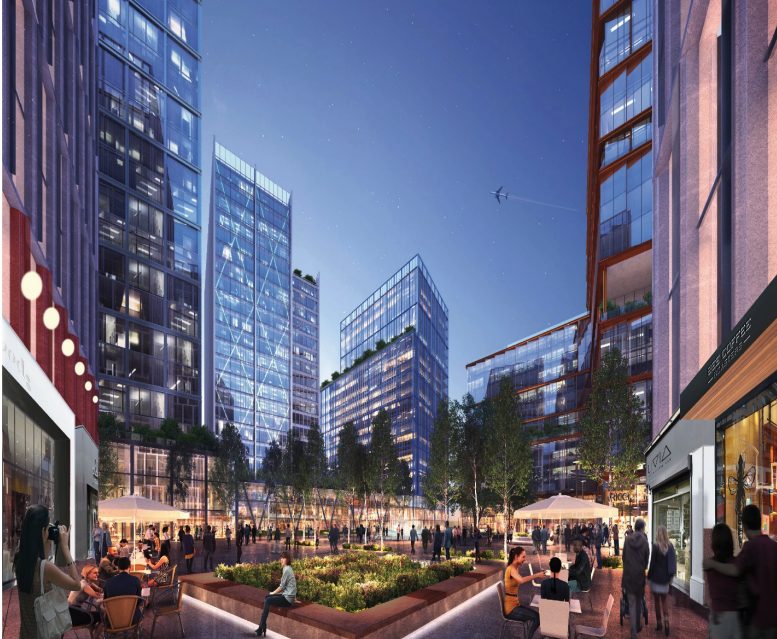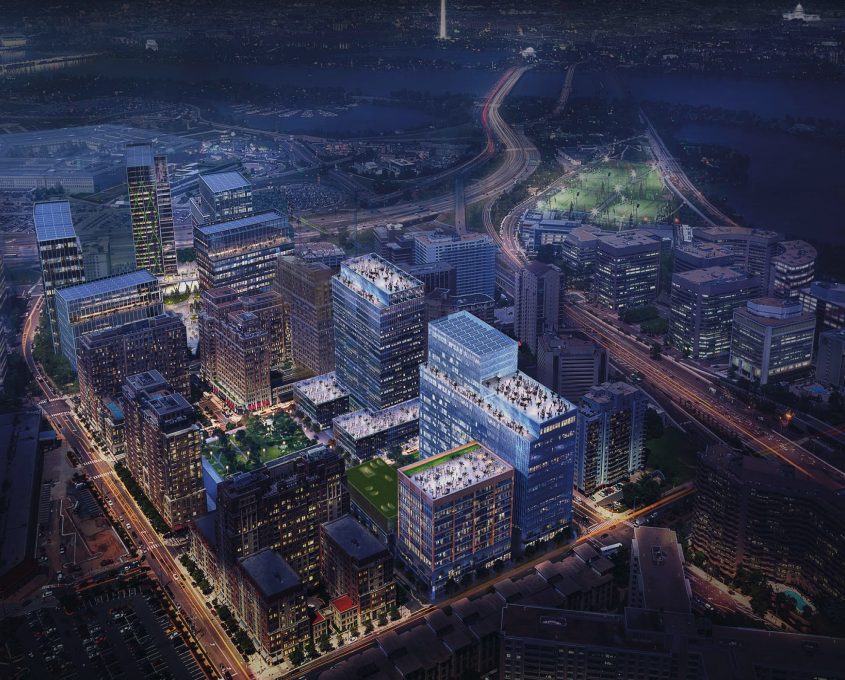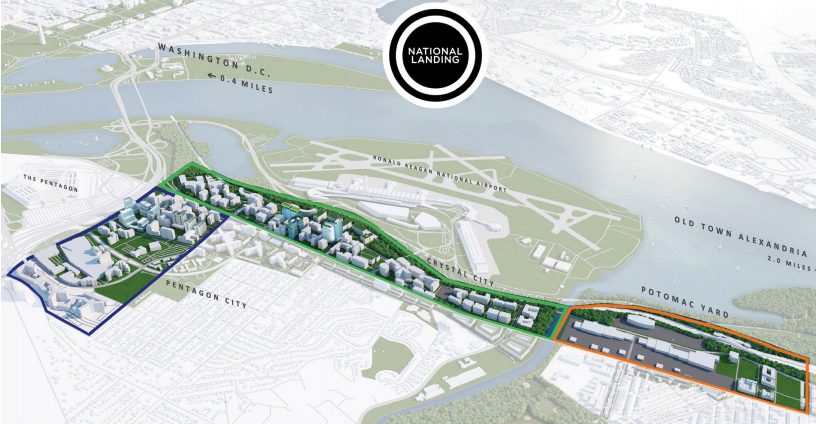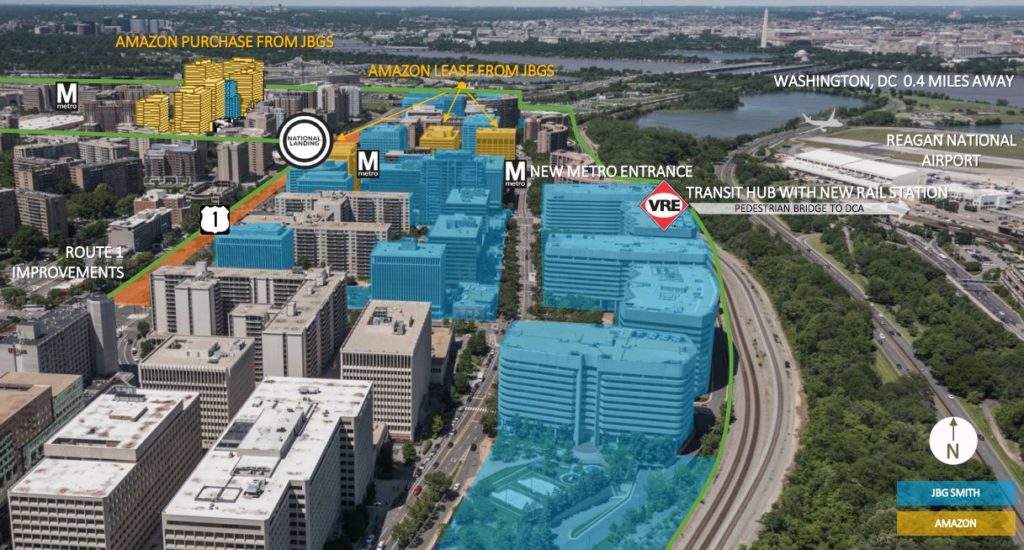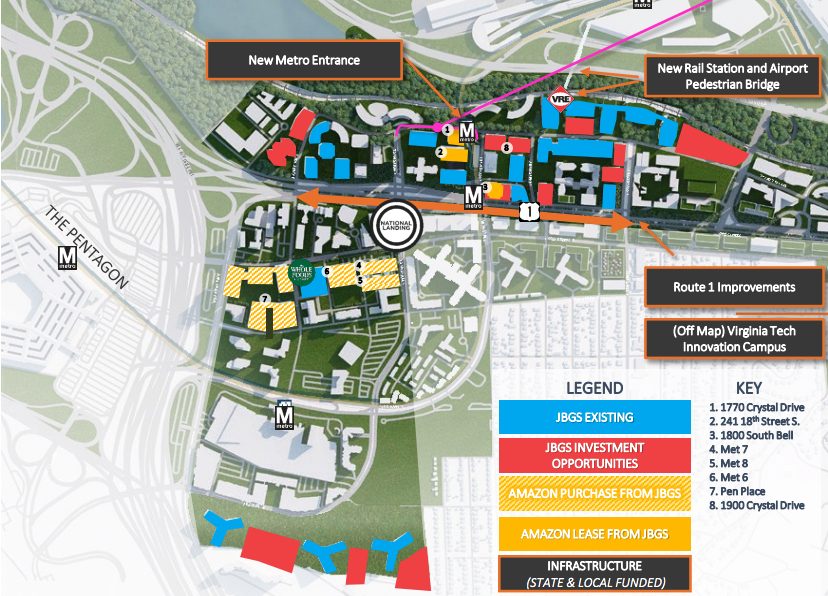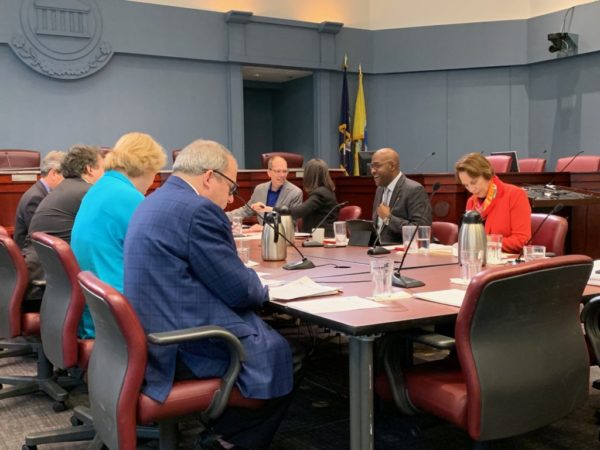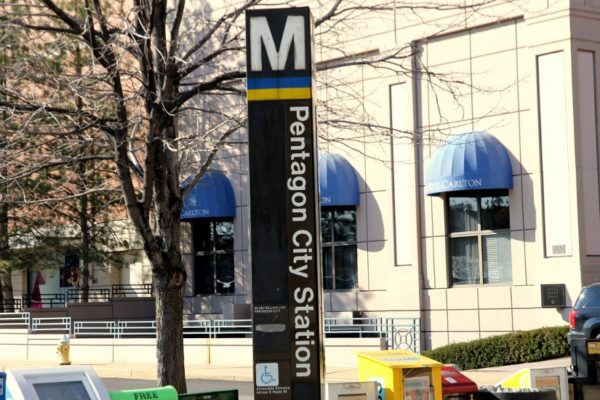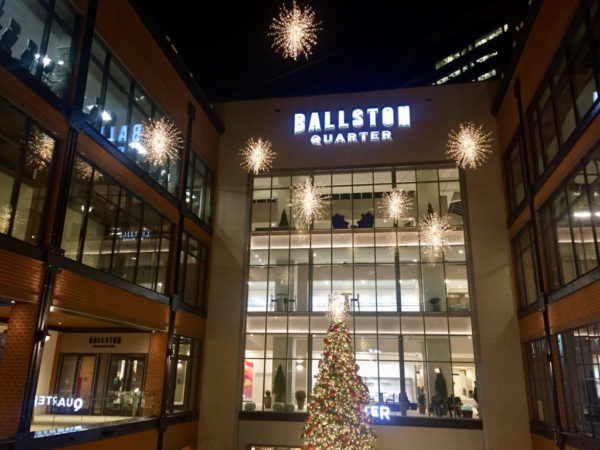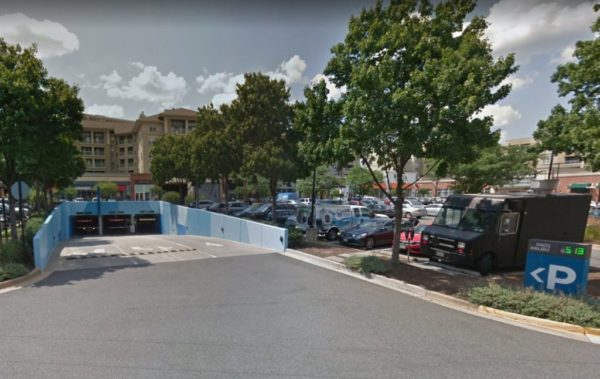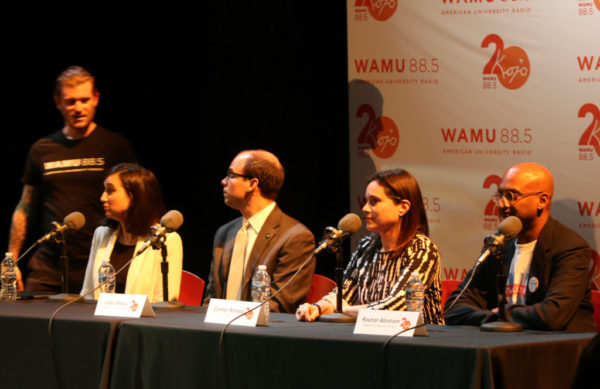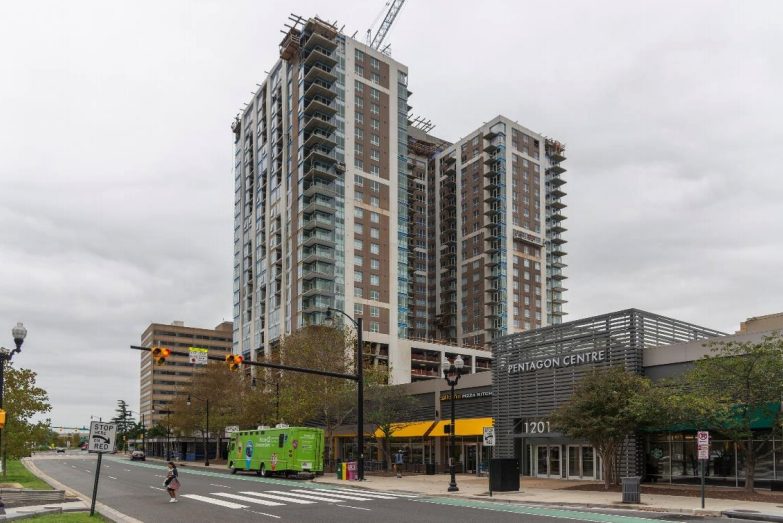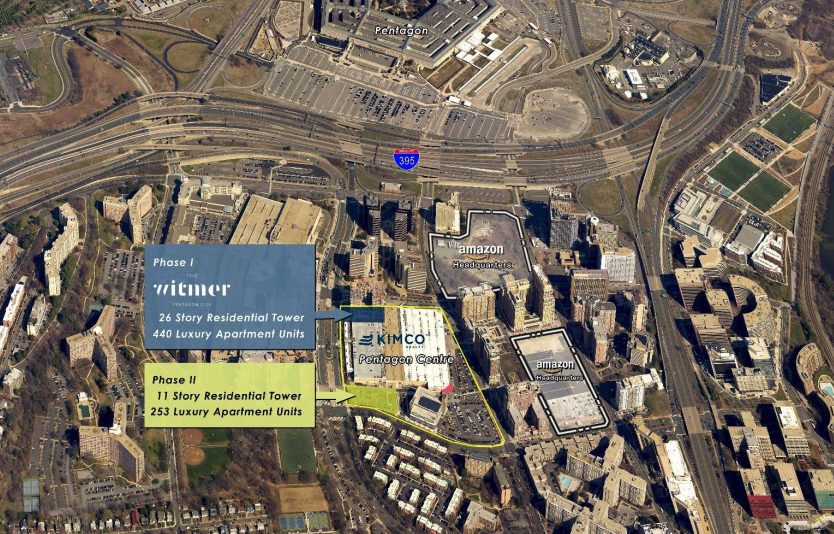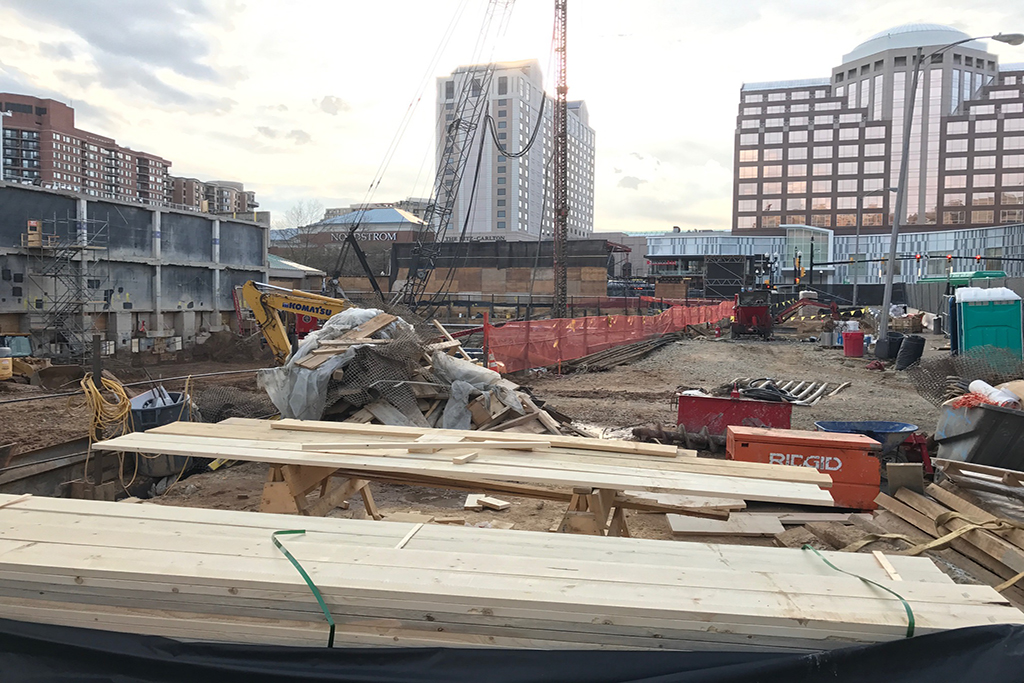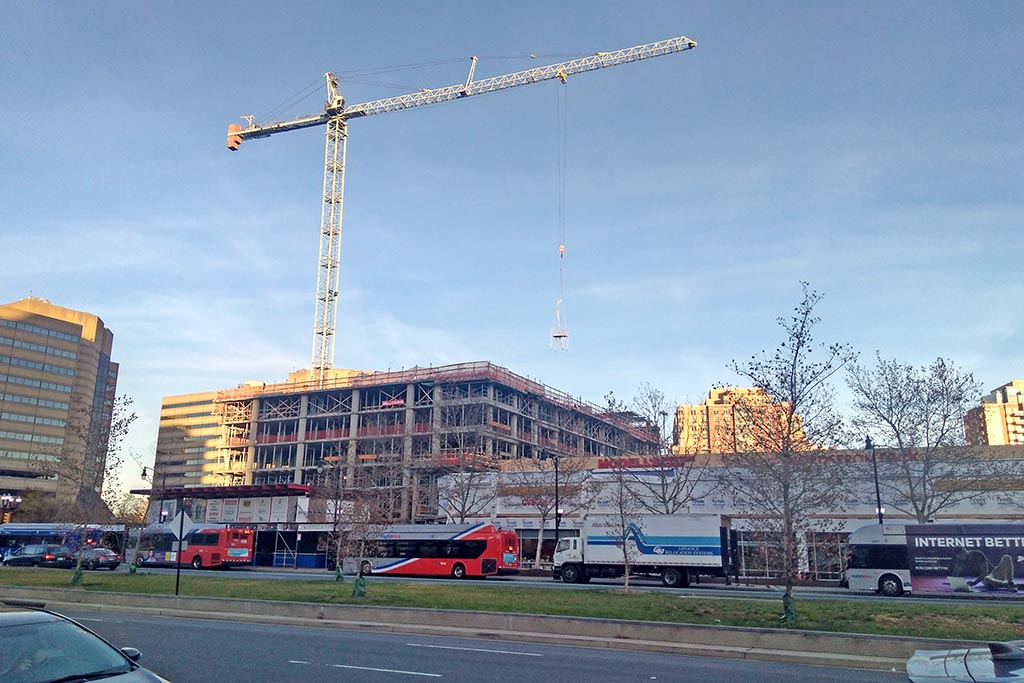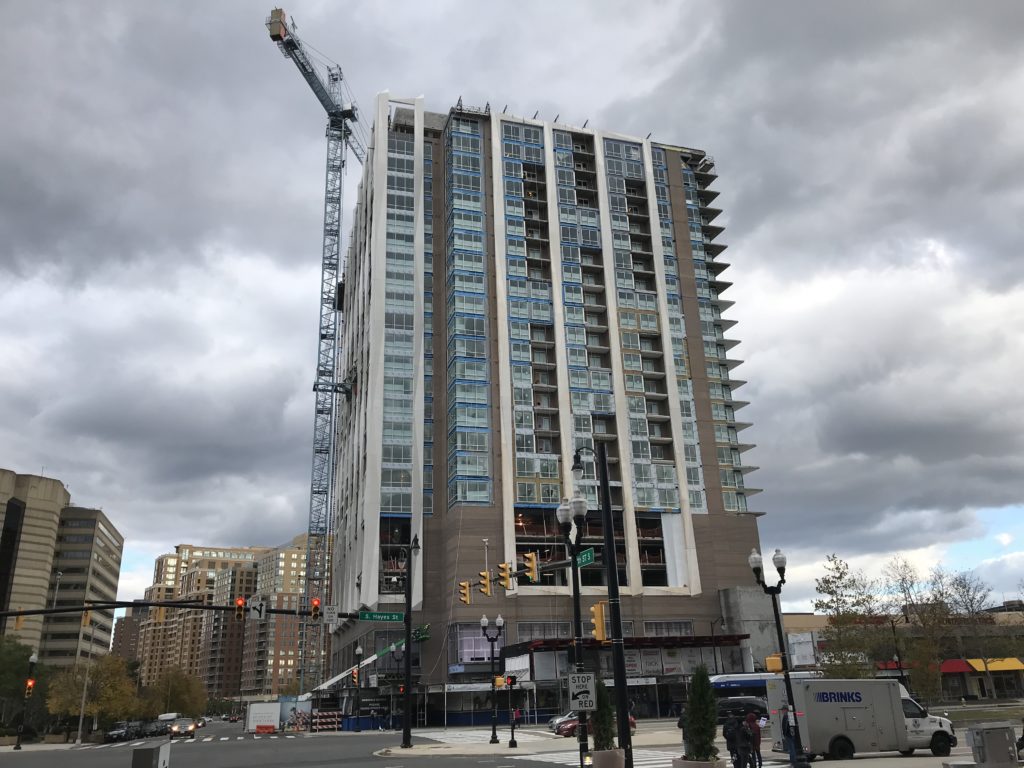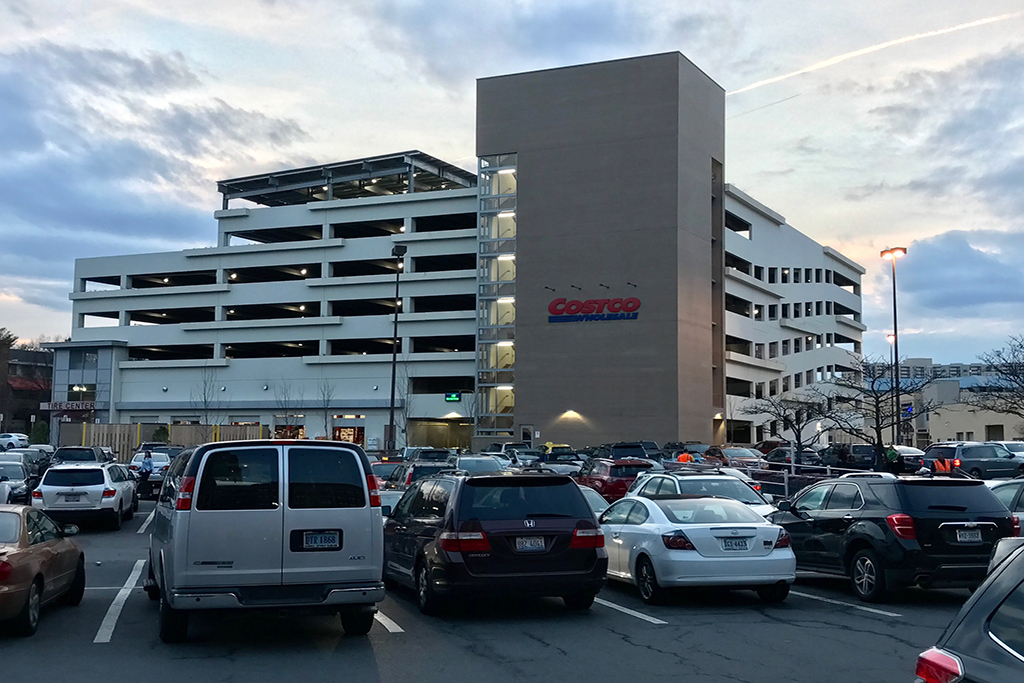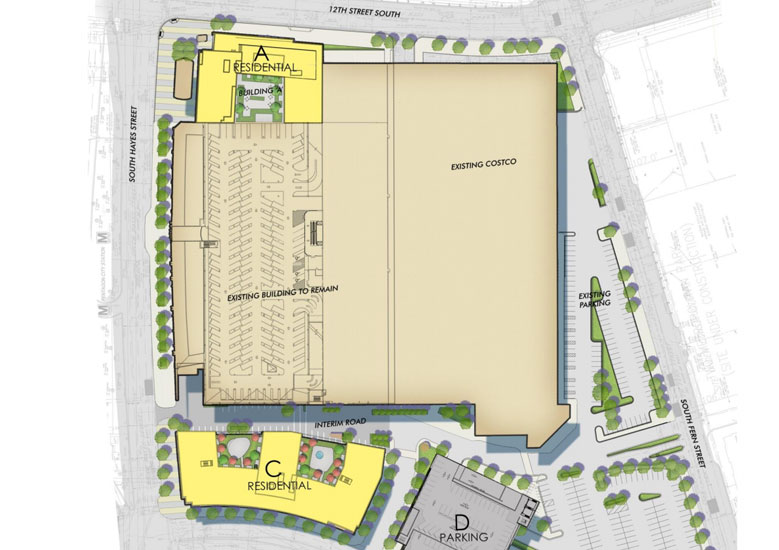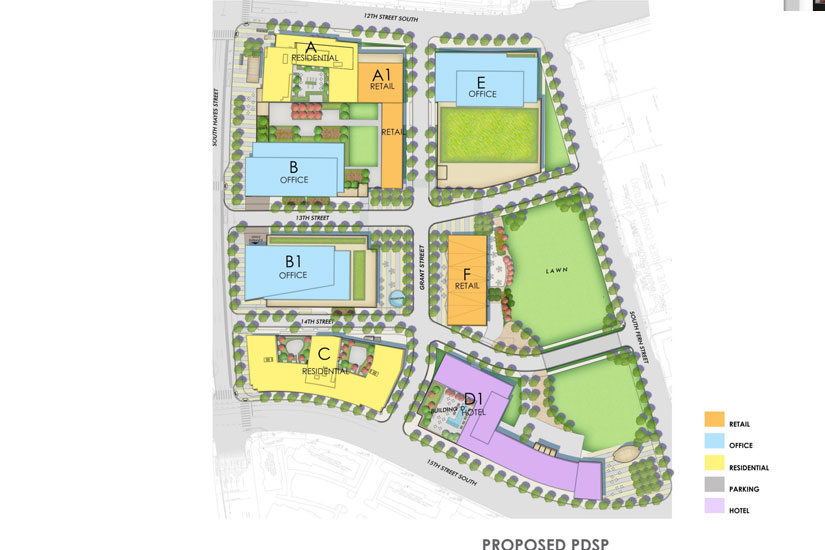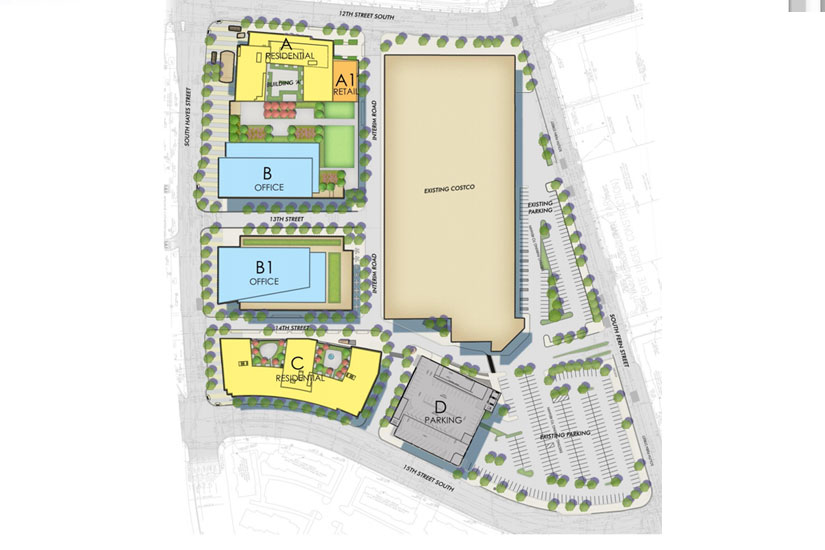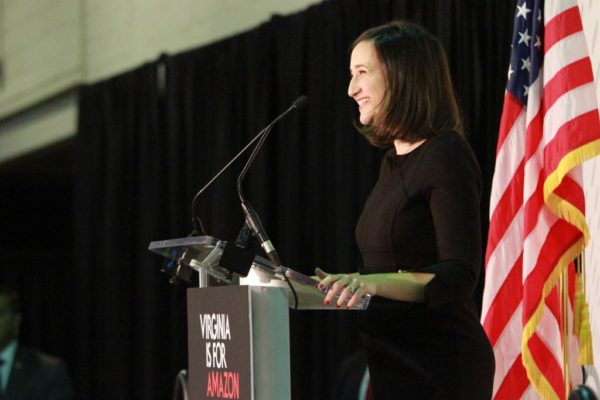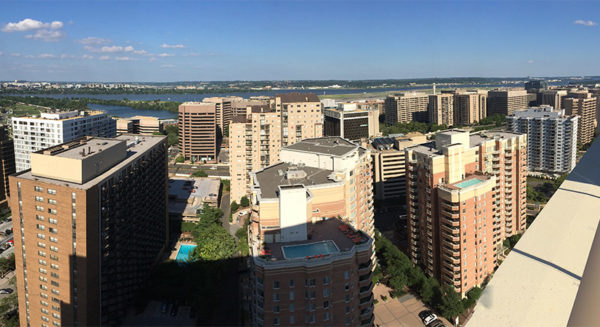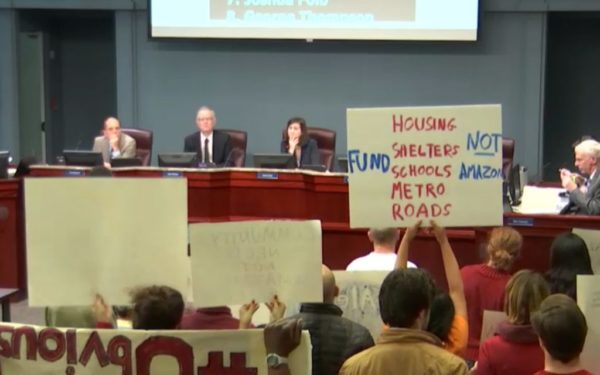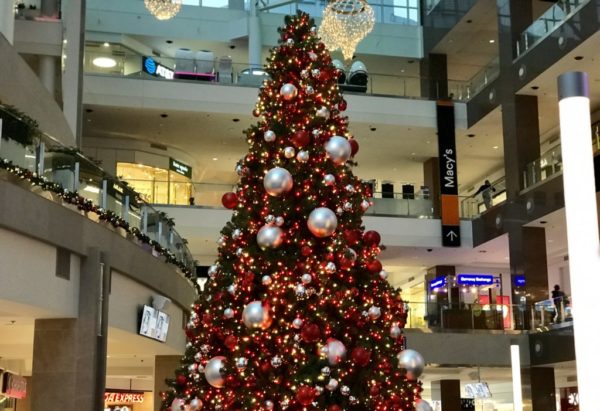JBG Smith is gearing up to invest hundreds of millions of dollars in Crystal City, Pentagon City and Potomac Yard, arguing that Amazon’s impending arrival could make the “National Landing” area nearly as in-demand as D.C. itself.
In documents delivered to investors last week, the developer revealed its most detailed plans yet for how it expects to work with the tech giant as it moves its 25,000 workers to the county.
Perhaps most notably, JBG revealed for the first time that Amazon will fork over $294 million to buy the company’s “PenPlace” and Metropolitan Park properties in Pentagon City, where it will eventually build new offices. As work on those buildings continue, the company will sign “short-to-medium term” leases at JBG’s buildings at 241 18th Street S. and 1800 S. Bell Street in Crystal City, where JBG is also planning to spend another $15 million to spruce up the properties.
JBG also told its shareholders that Amazon will lease the entirety of a new building planned for 1770 Crystal Drive, which sits at the heart of the developer’s just-approved “Central District” redevelopment project for the entire block. The company expects to spend $80 million redeveloping the building, with the eventual goal of opening it in time for 2020 and making it a more permanent home for Amazon employees.
But those changes represent only the work the developer is planning that’s tied directly to Amazon. By its own estimate, JBG already owns about 71 percent of office buildings in the neighborhood, and it hopes “redeploy the proceeds” of its Amazon windfall “into either new development or income-producing multifamily assets.”
Per the documents, potential projects could include the redevelopment of 1800 S. Bell Street property once Amazon leaves, or the overhaul of some of its other existing Crystal City and Pentagon City properties; 2001 Jefferson Davis Highway, 223 23rd Street S., 101 12th Street S., and the RiverHouse Apartments (1400 S. Joyce Street) are all listed as possibilities.
Essentially, the company is betting that Amazon’s arrival will be a “powerful economic catalyst” and “kick-start the development of a technology ecosystem that has long searched for its footing in the D.C.,” CEO Matt Kelly wrote to shareholders.
“As vacancy in National Landing burns off and technology job growth gains momentum, we expect National Landing to [surpass] Rosslyn as the most valuable Northern Virginia submarket, and approach convergence with Washington, D.C.,” Kelly wrote in a letter to investors.
Those forecasts represent quite the radical change from Crystal City’s previous woes attracting any companies to the area. The departure of federal and military tenants left the neighborhood with a persistently high vacancy rate, shrinking a key tax revenue stream for the county, but officials have long touted Amazon’s impending arrival as a way to solve that problem virtually overnight.
JBG is so bullish on the impending demand in the area that it could very well convert one of its planned apartment redevelopments into more office space instead.
The developer recently began demolition work on a building at 1900 Crystal Drive, space it eventually hoped to transform into two apartment towers with a total of 750 homes between them. JBG plans to start construction by “early 2020,” but notes for investors that “this project could switch to office in the event of a substantial or full building pre-lease.”
The company plans to eventually spend $550 million on that construction and work its other Amazon-related properties, though it expects it will have little trouble affording such expense. Kelly noted in his letter that JBG saw increased demand in the area even before Amazon made its Arlington move official, and has been able to raise rents and property asking prices accordingly.
“We have also seen a dramatic increase in demand from retailers looking to locate in our initial phases of placemaking development,” Kelly wrote. “Since the announcement, we have had a further wave of increased inquiries. We believe that this increase in demand for our holdings in National Landing will continue, and likely amplify, as Amazon grows in the submarket.”


